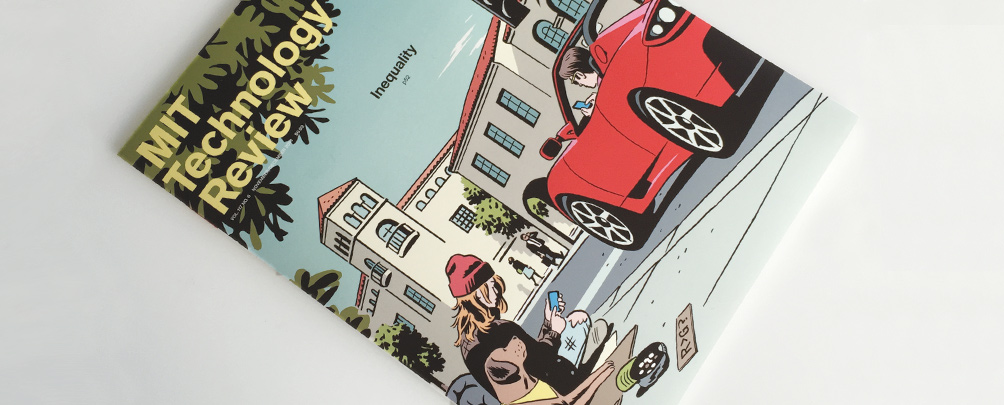The November and December 'MIT Technology Review' reviews the role of technological advances in the social gap.
“The real problems of the […] technological changes are mainly that when production processes change rapidly, specific types of labor can be made obsolete," wrote the economist Robert M. Solow for MIT Technology Review in 1962. His words, far from having become obsolete in these last 52 years, reflect a continuing problem. Therefore, the publication reviewed in its November and December editions the two-way relationship that maintains technology and equity.
The supporters who blame the technological advance for social injustice would have to look no further than Silicon Valley (USA) to load up on arguments. In this well-known cluster of technology companies, home to giants like Facebook and Google, poverty reached almost 20% of the population. One of the directors of the companies in the Valley Steve Jurvetson of DFJ Venture says in one of the articles of this especial edition that it’s “clear that technology is accelerating the growth of the gap between rich and poor ".

The expansion of this rift is caused by several things, according to testimonies from the experts collected in the series of articles in this issue. One of the most talked about is the one Solow warned about half a century ago: process automation eliminates low-skilled jobs. Moreover, technology itself allows advances for those who can access large amounts of people that are not from small businesses. In them a benefit concentration is produced in the hands of few people compared to the distribution of income in a large company in which there are more employees. This would be the case of Instagram, an application developed by two friends and that in 2013 already had 10 million users all over the world.
Against these sombre arguments saying that technology generates injustice, are those that see technology as a tool to turn inequality around. For them, education is a base that that allows anyone with an idea to triumph. MIT’s economist David Autor states: “If you’re qualified, you can earn a fortune”. The expert uses this argument against that status quo saying that depending on the income of the individual’s parents, that individual will be able to triumph or not.
The technology that has been up to now so criticized is precisely that that could allow the democratization of education. Access to the Internet, even if it is slow, is an infinite fountain of knowledge for those that have it. Also, the free education online services are growing and growing.
“First, every man will have a fair chance to make of himself all that in him lies; to reach the highest point to which his capacities, unassisted by special privilege of his own and unhampered by the special privilege of others, can carry him”, as stated by the president of the United States, Franklin D. Roosevelt, in 1910, whose quote has been used by the editor of MIT Technology Review, Jason Pontin, in this edition’s editorial.
In order to promote equal opportunities for technology Opinno not only spreads the message through their own edition of the magazine in Spanish, but promotes their other courses of action to promote young talent through their MIT Technology Review Innovator’s under 35 awards. In recent years, details like this have been awarded, from collaborative platforms and free language learning to a wind device for charging mobile phones in areas without electrification. Opinno is confident that place of origin or situation will never be the factor that limits creativity and the triumph of people.



